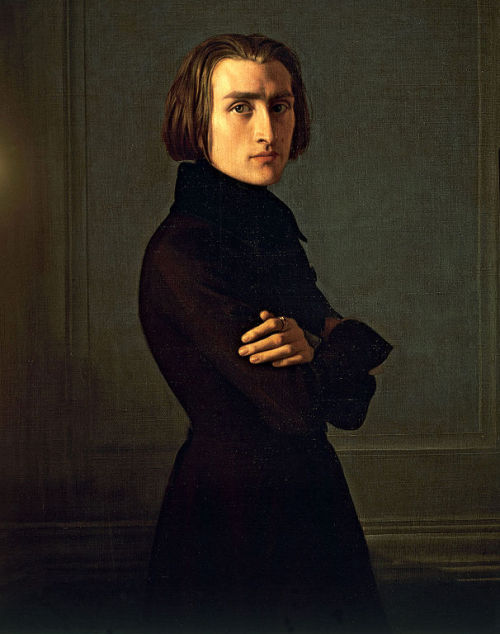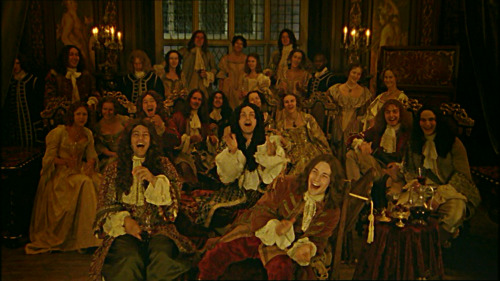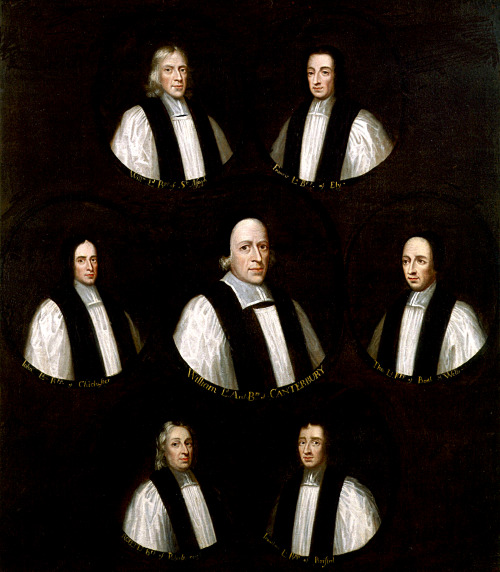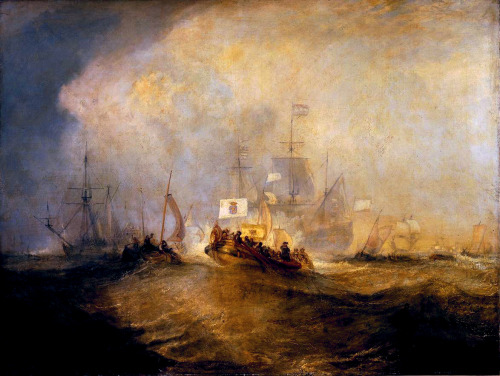#wizarding politics
There are many reasons why she is drawn to Rolf. The way he radiates peace, a still pool of calm in the middle of the wild storm the world makes as it goes by. The way he tilts his head just so and smiles, lopsided and with crows feet forming at the corners of his eyes. The way he simply smiles when she wears her homemade charms to ward off the nargles, does not sneer - does not even think to sneer. His pure, childlike naivete as he watches the world.
It is his love for the stories, however, which truly draw her to him. Stories the rest of the wizarding world harshly dismisses, shutting their ears and calling these storytellers animals, creatures, inhuman.
It is the stories no one else wants to tell, says her father as he bends over his printing presses, making sure the spells laying the typesets in place are working without any glitches, that we must tell.
And there are so many stories, she knows, that the wizarding world will never tell. Stories which she has spent her life listening to as she drifted through school, lonely and estranged from her fellow classmates. Stories a house elf named Dobby tells her. Stories a centaur named Firenze tells her - and later, other centaurs will learn to trust the fae-like young wand-waver who dares enter their forests, for she is unlike other wand-wavers for she listens.
There are stories that have nearly killed her - the time she nearly drowned, staying underwater without breathing charms, absorbed in the tales a friendly mermaid had to tell, for example, or the time Grawp (yes, she knew about him) nearly attacked her. Stories that she has reluctantly charmed out of recalcitrant tellers - goblins at Gringotts grumbling at this curious witch yet always eager for a chance to tell their story, fae-folk hidden away in their woods long relegated to the pages of myth and legend wondering if this dreamy young child is secretly one of their own.
These are stories they have longed to tell, longed to be heard. Stories of injustices and miseries. Stories of persecution and war and genocide. Stories which tell of the past, present and future in their own words.
She collects them all, precious gems, each with stories behind them. Stories upon stories upon stories. One day, when she and Rolf are ready, when the magical people behind these stories are ready, they will tell these stories to the wizarding world.
But it seems, Luna thinks, that the time for waiting is over; the time to tell these stories has come.
(Pics:1,2,3,4. For imgonnashoottothrill.)
Post link
This originally started off as a rebuttal to this post, linked to me by notyourexrotic but then I got distracted and ended up talking about a lot of things and a lot of personal headcanons about the wizarding world & politcs & economy & war.
Because that’s my thing.
1) We don’t know for sure that wizards hadn’t made all sorts of interesting discoveries and that these discoveries weren’t being suppressed for political reasons. Given the way the wizarding world’s political system and economy is structured, I’d say that chances are, a lot of the discoveries which could have turned up over time concerning magic and the way it worked, could have also disrupted the comfortable system in place by which the rich grew richer and richer while everyone else sort of bumbled around trying to get along.
Sorry, not could, would. It almost certainly would have disrupted this heavily caste-based society and created all kinds of trouble if people were forced to admit that actual incontestable fact showed that muggleborns were just as good at magic as purebloods. Or worse, that muggles could have a form of magic just that it wasn’t quite the same as wix magic - and that the muggles called it things like telekinesis or telepathy. Or that there could be squibs in the muggle world.
The wizarding world is crony capitalism at its worst and its not even a democracy, so what are the chances that the Department of Mysteries had come up with interesting inventions which were suppressed by the Wizengamot?
Pretty high I’d say.
(I’d also like to point out that the only time we ever even get a moment’s look at the DoM - arguably the most interesting department in the Ministry of Magic and also the only department dedicated exclusively to research - is in the middle of a battle and its mostly kids going “ooh weird shit” and that’s literally it, so you also have to take the flawed narrator perspective into account when dissecting HP canon.
And if you’re considering flawed narrator perspective, you’d also have to consider the fact that we only ever get to see the bits of the wizarding world that Harry gets to see and interestingly enough, its the not so well off parts of the wizarding world we get to see - not the homes of the rich purebloods who’d arguably be able to afford fancy gadgetry that the Weasleys can’t.)
2) Scale. everambling points this out in this post over here. Even if we are generous with their estimates and set the upper limit on population at 100,000 wix in Britain that’s approximately 2 wix per 1000. That gives you approximately 3,920,000 wix in total in the whole world.
Tbh, that doesn’t leave a lot of room for wix to have large amounts of money to invest in non-utilitarian research AND it certainly doesn’t allow for much diversity of thought, enough to warrant people collaborating over research while holding up an economy and a complicated (and regressive) system of government. There’s going to be lots of room for confirmation bias and the constant reinforcement of prejudices held in society, because that’s what happens when you get a non-diverse group of people together.
3) Using examples from the HP books to back up claims that wizards are regressive freaks is very contentious because a lot of those examples were played for shits and giggles, exoticizing the wizarding world in a way. In fact there’s a lot to be said for a sort of Orientalistic approach that JKR takes towards the wizarding world (classic exoticization of the other, depiction of them as “backwards” in terms of “scientific progress”, structured around a very ritualistic and strongly-caste based society, barbarian for endorsing this segregationist society and its treatments of its subaltern classes etc.) but that’s a topic of discussion for another day.
I’m more interested in looking at the things JKR never explicitly mentions but are the first thing you’d think of if you were in the middle of a bloody war.
Things like their pitiful military strategy - no spies at all really?
The fact that fifty men and women managed to terrify the fuck out of at least a hundred thousand other people scattered over a geographically vast area and that no one managed to catch enough of these men and women to be able to dismantle this group of terrorists.
The fact that a hundred thousand wix came to depend on a boy to save them. Without, you know, trying diplomacy and calling in allies?
I’d say the key problem with the wizarding world is the fact that its a world which seems to have been structured around the cult of personality.
Look at the way their wars are structured. In the grand scheme of things, the Death Eaters are basically minions who cause as much trouble as possible and the Order is basically the “clean up” team. The crux of the battle still depends on Harry defeating Voldemort. Defeat Voldemort and the Death Eaters magically disappear into the woodwork.
Ditto Grindelwald and Dumbledore.
And lets not forget the four Hogwarts Houses which basically sorts kids on the basis of what four people at some point in early medieval history decided was what they wanted the kids who studied under them to be like. And these kids then proceed to have enemities based on the enemities between these four original people.
Oop.
The thing about “muggle inventions” is that a vast amount of our “progress” especially from about the eighteen hundreds to the fall of the Communist bloc, was - directly or indirectly - the result of warfare, colonialism and laissez-faire capitalism. Tarmac roads & railways? Useful for transporting troops through difficult terrain in the colonies. Also useful for transporting raw materials from ports to industrial centres and then to consumer centres elsewhere. The only reason men got put on the moon & in space was because Russia and America were busy flexing their muscles at each other in a not-so-subtle “mine’s bigger than yours” argument. Radar was the result of the world wars. The first few supercomputers were used for weather forecasts aaaaand aerodynamic research. The Internet was the result of the US government commissioning research into the development of no fault computer to computer communication systems. The World Wide Web was originally conceived of to create a more effective communication system for CERN - the European Organization for Nuclear Research.
And the reason all of this is so inextricably linked to our history of war, imperialism and capitalism is because wars in the muggle world happen on a completely different scale, involving hundreds of thousands of people - seriously, most armies were larger in size than the population of wizarding Britain - and necessitated inventions to match the scale of those operations, to actually put one group of people ahead of another in the whole war biz.
Also haha, most of the money that poured in to fund muggle research? Money pulled from colonies or built upon the back of the slave trade. And of course, the amount of money pouring out of these countries was in literal billions. So don’t talk to me about how muggles were smart and brilliant because the only reason they got round to inventing shit was because they had enough money to play with.
I’m not saying wizards weren’t just as bad, because my posts on the Shafiqs and the way wand-using wizards thought of non-wand using cultures indicate that they could have been equally problematic. However, I do maintain that wizards could not have colonized on a similar scale, because of, as I mentioned above, population sizes - and even if they did, the wand/non-wand dimension of segregation is less potent as is the pureblood/muggleborn classification system, so it would have probably played out quite differently. And it certainly wouldn’t have allowed for the plunder of resources to fund large scale research or necessitate research into solutions for handling large and unruly populaces.
Wizarding wars, though, unlike muggle wars are much more up close and personal. They literally revolve around the one-on-one duel (which tbh, is a seriously inefficient method of war and I imagine there’s some sort of cultural framework - one potential framework I’d come up with earlier was a trumped up notion of masculinity and honour, revolving around hand-to-hand kills being valued more than things which get the job done - that has restricted the wizarding world for so long, probably in an effort to prevent the population from going completely extinct).
Examples of wizarding warfare being structured around the cult of personality:
e.g. Dumbledore being called in to deal with Grindelwald. The fact that Dumbledore is pretty much credited with winning the war against Grindelwald - and apparently his Lightning Guard just magically evaporates/disappears along with him.
e.g. the fact that after Voldemort disappeared none of his followers who were still roaming free ever carried out any terrorist attacks, attempted to keep his group running with a different leader at the helm or to keep recruiting new members (who aren’t their sons/daughters).
e.g. the fact that after Voldemort disappeared, Harry, a one year old baby, became the hero the wizarding world would use as a crutch, instead of putting effective preventive measures into place to prevent a terrorist group from arising in the future and actively trying to use propaganda to effectively combat prejudice against muggleborns and half-bloods. And the fact that the Order never bothered strengthening ties with werewolves and other magical creatures who were at risk for recruitment by Voldemort, so as to prevent any further recruits in the future.
e.g. the fact that in the end, even with all the help Harry received from his friends, the story still revolves around Harry having to defeat Voldemort. No one else can defeat Voldemort. Only Harry. Dennis Creevey cannot pick up his wand and kill Voldemort. Oh no. Only Harry can kill Voldemort. Yes this is the result of the prophecy and Voldemort accidentally putting his soul into Harry, but given the reveals in DH, its a bit hard to ignore the fact that Harry-Voldemort falls back into the Dumbledore-Grindelwald trope.
e.g. the fact that people blindly follow their chosen leaders/institutions - Dumbledore, Voldemort, the Ministry - without really questioning the choices of their leaders, or at the most providing only very feeble resistance. That the only person who questions their choices because of a higher moral standard and not because of some person, is Regulus Black whose tale, as told by his brother, is one of a person getting too involved and wanting out - i.e. cowardice.
If you’re structuring warfare around leaders and armies literally being made or broken depending on whether or not their leaders remain undefeated in battle, that doesn’t really give much cause for people on the ground level to innovate and come up with clever ways of fighting their opponents, because either way the war that matters happens at the top out of their reach.
Its very, very easy to slip into a kind of fatalism if this is the world you’re living in, or at least to develop a completely different understanding of what progress is.
4) Progress =/= more technology. Progress = what improves the standard of living in that society, for all its people, while being relevant to that society.
What exactly would the purpose of borrowing electronics from muggles be if electronics and muggle artifacts don’t work around wizards because of magical interference?
They’d have to reinvent everything from scratch and that makes no sense if you can just create a spell to achieve the same effect.
We know that Fred and George Weasley invented a whole lot of stuff while they were at Hogwarts, so its reasonable to think that there was some sort of innovation going on, just not in the same direction that we muggles were moving in.
Its not unreasonable to expect that some of the Hogwarts professors were involved in this innovation themselves what with McGonagall’s history of having excelled in Transfiguration research and Snape having discovered ways to modify standard potions formulae so that the process became a lot more streamlined. Its not unreasonable that there were wix businessmen inventing things and selling them to the wizarding public. And its certainly not unreasonable to expect that the Department of Mysteries wasn’t doing some of this innovation itself - or at least studying and classifying the innovations of other wixes and making the more harmless ones available to the public for use - possibly through pamphlets, possibly through handbooks and guides, possibly also through the syllabus at Hogwarts (presumably spells have changed considerably in form over time and the ones we see in HP are not the same as the ones the founders of Hogwarts would have used).
The problem is not a lack of progress in the wizarding world. The problem is its political and economic structure, which allows for monopolies of knowledge, power and wealth and moreover, the way it exerts complete control over how knowledge is disseminated and what knowledge is disseminated.
The problem is knowledge suppression.
But it’s better to be called a being than a beast, isn’t it?
Remus laughs long and harsh at that one. It isn’t pleasant.
Firenze says, somewhat distantly, we have read the future in the stars and then falls silent.
Sanguini explains, a little.
They tell you it is an honour. You are a being. You can think. Bon. I did not know that, I needed a wizard to tell me that. You are excited, you celebrate. This is the beginning of something new, you think. No more hiding.
Then it starts. First, they ask you to sign here and sign there, so you sign, because why not? You are no animal - you can think as well as any wizard, you are a being just as them.
Then they ask you to give them your names. Instead of a name you get a number. You have to remember this, it is important. Then they smile at you and tell you are dangerousso you must report to them and let them know where you are. What you are doing. That too you do. It appears on your papers. You are a being. You show that to people, they turn pale, paler than the oldest vampire and they inch away - polite, but it is there. You show that to employers and they politely tell you that the job is taken. The wizard who goes in after you gets the job. You look at your papers and tell yourself, ah but I am a being, I can think. But it is not enough.
Then they look at your wands and look at you. You can smell the fear. They take those away too. For the good of society. But we can think and that is all that matters no?
You know what the highest cause of death among vampires is, Mr Scamander? Hmmm? Bounty hunters? Werewolf attacks? Wizards defending themselves? Wrong!
It is murder and suicide. That is what my people have fallen to. But we are beings, not beasts and that is something to be thankful for, si?
Post link
Socks to be you
What Iceland’s boycottal of the ICW’s Geneva conference means for the rest of the wizarding Europe
GENEVA, SWITZERLAND
THE INTERNATIONAL Confederation of Wizards is not normally an organization one would associate with political upheaval, or indeed, any kind of political action at all. It is, at best, viewed as a purveyor of unwanted and needlessly complicated rules and regulations on such vague issues as the standardization of cauldron bottom thickness. Not, then, the place one would expect a diplomatic incident to take place.
On the 3rd of June, however, Iceland proved to be the exception to the rule. At a press conference in Reykjavik on Wednesday night, Iceland’s Minister of Magic shocked the wizarding world when she announced that Iceland would be boycotting the ICW Geneva Conference on the 19th of June, calling it ‘a waste of time for our representatives’ and 'a step back in time for our country’. The issues, Minister Sigríður said, were not of pressing concern to Iceland’s representatives and moreover, that the proposed legislation to deal with the growing House Elf Rights movements all over Western Europe would restrict, rather than free Iceland’s elf population.
Iceland’s boycottal of the ICW’s Geneva conference has caused considerable ire among the rest of Europe’s leaders, with some calling Iceland 'uncooperative’ and 'unwilling to come alongside the rest of the world’. While this is not the first time that a country has refused to vote on issues tabled at ICW conferences, it is the first time that a member country has gone so far as to refuse to attend a conference because they felt the issues being discussed were 'irrelevant’ to their country’s interests.
Minister Sigríður’s further claim that if the rest of Europe was to look 'northwards’ they would find the answer to their House Elf 'problem’ provoked severe indignation among Europe’s representatives. Roger Davies, England’s representative in the ICW, patiently points out that although not all problems may be universal, it is the responsibility of all the members of the confederation to offer possible solutions where they can be of help.
While Iceland has certainly set an example for the rest of Europe with its progressive stance on elf and house-elf rights, Minister Sigríður’s suggestion that the rest of Europe simply look 'northwards’ is disingenuous when one considers the hugely differing sociopoliticaleconomic contexts of Iceland and the rest of Europe. House elves have long formed the backbone of Britain and continental Europe’s economic system, being the 'invisible hands’ that power our economy, as it were. While there is no one who would suggest that the house elves do not deserve complete freedom or indeed, better working conditions and a uniform wage system, it is certainly naive to believe that instant freedom would solve all the problems posed by the employment of house elves - or that it would not create new problems that are not merely economic.
Studies by researchers with the House Elf Liberation Front, examining written records held by old pureblood families across Europe, have shown that the nature of the magic that binds house elves to families and places is such that it causes considerable psychological damage to these creatures. This damage is permanent. After several generations, house elves raised by other house elves react as their parents do. Even though the binding magic thins over generations, then, house elves reared by other house elves are likely to react much as their forefathers who were bound by much stronger magic. Freeing elves instantly could possibly cause far more psychological damage than if they were to be gradually freed via a process of rigorous re-education - similar to the ongoing programme at Hogwarts - while being flexible enough to allow for instant freedom for those elves who want it, as proposed in the draft legislation being tabled at the conference.
Some elves are more equal than others.
It is equally naive, however, of Europe’s representatives to mark Iceland’s boycottal down to sheer Nordic pigheadedness. Sweden’s representative to the ICW has privately called Iceland’s move 'courageous’ and it is quite likely that Norway may follow in Iceland’s footsteps and refuse to join the conference as well. Iceland’s refusal to join the conference, citing the 'irrelevance’ of the issues being discussed must be seen in the wider context of growing Nordic discontent at the way in which the European chapter of the ICW is currently dominated by England, Germany and France. These three countries alone account for ten of the bills under consideration by the ICW at the moment. Of these ten bills, at least three would be a step backwards for the Nordic countries, if they were to sign these bills and agree to follow these legislations in lieu of any laws they may have on the matter. The House Elf Rights bill might just be the metaphorical riddle that snapped the Sphinx’s cool.
If the ICW is to avoid such boycottals in the future, it is necessary that a certain amount of nuance is brought to the discussion of legal matters within its European chapter. Rather than blanket legislations that overwrite pre-existing laws in each country, perhaps a better approach would be to allow for a certain amount of flexibility for the application of these laws, applying them only where no other laws exist to set a precedent and discarding them where the currently existing law is far more progressive. They might even ask other countries for their inputs while drafting bills that will govern important issues and not merely cauldron bottom thickness.
There is also the problem of Iceland’s huldufólk or, free elves. According to Rolf Scamander, a noted magianthropologist, these elves are far more in common with our Irish fae folk than they do with the average house elf. Clubbing them together with house elves as the legislation does, in his view, is a big mistake; Iceland’s elves view themselves as vastly superior to their tamed cousins elsewhere and moreover, have considerable freedom under Iceland’s laws, which allow them a fair amount of privacy, a certain degree of latitude where the Statute of Secrecy is concerned and the right to retaliate as viciously as they choose when slighted.
It is hardly likely, then, that the ICW’s proposal that all elves be classified as sentient magical creatures and therefore be made to follow all the laws that are applicable to sentient magical beings, including the Statute of Secrecy, would please these feisty creatures. Perhaps Iceland’s representatives have the right idea after all.
From: The Wixenomist, June 7th - 13th, 2009
Post link
It was not as though she did not know what she was, or as though she was afraidof the petty prejudices of wizards.
But perhaps it was better to keep some things secret, purely for convenience’ sake, you understand. It was not as though she was so very different from them.
Sometimes, yes, she heard her girls whisper behind her back, looking at her askance. And sometimes, yes, some families would rather send their daughters elsewhere - else find tutors for them (tutors, ironically, she herself had taught). But in the end, they would always come to her, her girls, and ask her whether they ought to have damask or brocade robes, robes of silk or robes of tafetta - and she always knew, far better than those ri-di-cul-ousmagazine, which robes were en vogue.
So how could she be very different from them? She was one of them. She was not a violent, barbaric, barely intelligent creature. Madame Maxime simply kneweverything, therefore, normal. So how could they, the girls she had taught how to dress and how to walk, how to bow and how to deliver an insult just-so stand by and quietly let their headmistress be called barbaric?
Yes, there was method to her madness.
Behind every succesful Ministry man, after all, was a Beauxbatons witch.
(Madame Maxime requested by storylinecaroline)
Post link
Of the Statute of Secrecy and the Glorious Revolution
It began, truly, with the ascent of King James II. A Catholic king, a Papist; no true English King was he. Before, there was the Malleus Maleficarum, admittedly. An evil work, full of hatred and prejudice and gross ignorance. But James, James the Catholic King, went further than anyone had gone before. James saw witches brewing storms in cauldrons, wrecking his ships on the high seas. James saw dark shadows and dangerous forebodings in every nook and cranny, in every old crone’s face. James saw sorcery in the dark claws of the Black Plague which reared its head once again and scoured England’s bonnie shores for new victims. James saw Protestants and witches conspiring with each other, to depose him from his throne.
And so James made them burn.
They burned without discrimination. They burned harmless old women who had long outlived their usefulness. Children. Oddities. Enemies of the state, professed and believed. They stoked the flames with their pamphlets, little tracts and brandished copies of Malleus Maleficarum and other such esoteric works - and how the magical world burned. Wizards, witches and sentient magical creatures began to flee into hiding, shutting themselves away from the world they had once known. Books on wards which had hitherto languished on shelves were taken down and dusted off as the wizarding world slowly disappeared from sight. Calls for separation and secrecy were rife. Magical children who once played happily on the streets with their non magical counterparts were suddenly dragged away and indoors by worried parents. None dared walk the streets with their heads raised high - head down, eyes down, walk briskly, out of sight out of mind. And yet they burnt, the flames steadily rising higher.
Until finally the flames leapt so high, it tickled the chairs of the Malfoys and the Blacks, the Notts, Averys and Rosiers, the Prewetts and the Longbottoms and Macmillans. Powerful families, as yet untouched by the persecution their fellow witches and wizards were subject to, happy and carefree as they danced among the lords and ladies of the time and whispered secrets into the ears of princess Mary - for the king distrusted them far too much to let them counsel him. For the first time in centuries the whispers they heard were directed at them - strange, unnatural, abnormal, possessed by demons, satan worshippers, heretics, kill them, burn them. Cutting insults and calls for excommunication and worse, death, being freely tossed among those they had once considered friends.
So it was that some of the magical folk of England came to cast their lot with seven bishops and seven lords who had long been conspiring with William of Orange to depose King James (God have mercy on his soul, he had no right to usurp Parliament and its processes - nor to employ a standing army of his own; all Catholics, down to the last man). William would re-establish the rule of law and wizards would no longer have to live in the shadow of fear. This much was promised to them both. They would not have it as so many others would; to separate from the muggle filth, as the Blacks and Lestranges put it; for they did not care to lose their comfortable places in power. The Statute of Secrecy, which so many wizards were now favouring, was an idle and impractical fancy, said the Malfoys, Averys and Prewetts, for how could they live apart from those they shared their land with?
Of all the families of political importance, the Rosiers were uncertain of where they stood on the matter of separation from the muggles and were courted for their indecision. The Blacks and Lestranges would have them add their voice to theirs - and sometimes the Rosiers teetered on the verge of arguing for secession. But then the Malfoys would sidle up to them and remind them of all the influence and extravagance they stood to lose if they closeted their world away from the muggles. Reluctantly, Edmund Rosier finally sided with the Malfoys, unwilling to sacrifice the comforts of muggle aristocratic society.
Unfortunately, the best laid plans of men and wizards oft go astray. In this circumstance, they went astray in the form of Edmund Rosier’s youngest son, Frederick Rosier: an excitable young blood, with a penchant for causing disturbances on His Majesty’s highways. Young Frederick thought of himself as a noble, Robin Hood-esque figure, stealing from the rich to give to the poor. Needless to say, his father and much of the rich wizarding world looked on him askance and ignored his misdoings, save when it was they who were being robbed by this dashing young man.
It was when William had set sail from Rotterdam, after a storm on the seas had scattered his fleet, that the first of the rumours began to pour in. Another witch killing. King James’ men at arms had shot someone. The kind of rumours which were perpetually being tossed about. But it was on the first day of November, as the wizards tried their best to combat the unfavourable winds with weather altering charms, that news reached Edmund’s ears that young Frederick had been shot by King James’ men-at-arms at an inn on the road from London to Bath.
Now make no mistake, Edmund Rosier had never had much love for his son while he had lived, considering his youngest to be a disgrace to the family name. - had even gone so far as to disown him. His death at the hands of muggles, however, in the fashion of highwaymen bandits and muggle commoners, left him furious and distraught by a grief that a child experiences when a toy it has hitherto ignored is removed from its reach. He closeted himself away in Rosslyn Hall, seeing none but his closest family and exchanging letters only with the Blacks and Lestranges.
And while he was gone, pureblood society whipped themselves and wizarding Britain into a fanatical frenzy, for the muggles had gone and done a terriblething, shooting a Rosier as though he were a common criminal.
When William finally landed on England’s shores on November the 5th, and declared freedom and liberty for one and all, he found the wizarding world up in arms,crying for justice for this most precious son of theirs. For a Rosier is always a Rosier, even in disgrace and upon hearing of his son’s death, the Rosier patriarch had changed sides and now cried for separation from these animals altogether. Many rallied to him in their shock and horror - for young Rosier was well-loved among the people (and even though the Purebloods had never loved him in life, in death he became their champion, a brave hero who stood up to an unjust and oppressive regime and was consequently shot for his fine efforts).
What else could you expect from animals, said the Blacks. The Lestranges simply snorted sardonically, content that their point had been proved. Both welcomed the Rosiers into their fold, disbalancing the careful alliance of support the anti-statute of secrecy faction had built up.
Wait, said the Malfoys, for William would surely give them the justice they desired. (How tiresome to have to give up one's comforts for justice for a rich man’s wastrel.)
Yet William turned a deaf ear to them and turned instead to his non-magical supporters for advice. He praised the soldiers for doing their duty by God and their country, rewardedthem as the wizarding world looked on in horror. He had not come for these pagans, he said, he would not help them for they were rogues and criminals all, lacking in civic discipline and unbound by the true morality which came from the one true God above all other gods. His people were the Protestants and Anglicans - true Christians - not these heathens who in truth, deserved to burn for their heresies. Pro Religione et Libertate, that was his motto. He had not sailed all the way from Holland only to betray the motto he so proudly displayed on his arms. He would not hear these heathens and criminals any more.
Vindicated, the Lestranges and Blacks crowed in triumph: this, this was why allmuggles were filth; the Malfoys were foolsfor thinking otherwise. Those creatures could not be trusted to keep their promises; in the end they would always turn to bite the hands which fed them.
Too shocked to retaliate, the Malfoys made no countermove when the Wizengamot was convened and the Statute of Secrecy was voted upon. Family after family voted against mingling with these vile creatures, who turned on their friends sans provocation and could not be trusted to keep their word. For William had promised to help them, but when the time came for help, he had turned his back on them and chosen their oppressors and enemies - the ones who would have burnt them - forgetting that it was they, the magical ones, who had filled his sails with wind and brought him to England before James could rally his armies. William had betrayed them, but never again would they be so deceived.
Thus it was that the Statute of Secrecy was passed without a murmur of opposition. And in early 1689, not more than three months from Frederick Rosier’s death, the wizarding population of the British Isles forever closed themselves off from their fellow muggles and to all extents and purposes disappeared.
For a Pureblood is a Pureblood even when disowned and the magical folk always stand by their own - who would, if not them?
[Picture sources: Screencaps from Charles II:The Powerand Passion,The Seven Bishops Committed to the Tower in 1688 by an Unknown Artist,The Prince of Orange lands at Torbay by Turner, William III at the Battle of the Boyne by Jan Wyck]
Post link
The Sacred Twenty Eight: the Noble and Most Ancient Houses of Mulciber, Rosier and Malfoy. (3/3)
The Malfoys, to their dismay, were not even deemed worthy of an insulting gift. Pretenders, the Mulcibers called them and blithely dismissed them as being generally unworthy of a gift. Their lineage was not old enough - even though they could trace their line back all the way to the Merovingian dynasty at least (more than several other families they could name) - and they had no dedicated family craft or magical art to speak of. That they had risen from obscurity and become one of the most powerful families in wizarding Britan seemed to matter very little to the Mulcibers. Parasites, said the Mulcibers, for the Malfoys thrived on the little games people in power played with each other and not on any magical skill of their own.
Worse still, the Malfoys were rather new when one compared them to the other families of the Sacred Twenty Eight. They could not trace their family line back all the way into legend as so many of the other families could - indeed they did not waste their time brooding over long family trees of dubious veracity. They did not claim divinity as the Lestranges did, nor did they claim to be descendants of famous and powerful sorcerers and sorceresses. No. They wore their badge of services rendered to William the Conqueror with pride - and wizarding society bought it for the most part. After all, not many could boast of having rendered services of a personal and delicate nature to the country’s monarchs.
The Mulcibers, however, proved to be a tiresome spanner in the works of the Malfoys’ carefully crafted story. Unspecified services to William the Conqueror were nothing to boast of, they said. Sailing with William the Conqueror was no great deed in itself. For all they knew, the Malfoys might have been William’s hangsmen - in fact it was quite likely, given the Malfoy family’s reticence on the matter of the nature of these services. Neither were services rendered to Her Majesty Queen Elizabeth the First of England enough to make the Malfoys worthy in their eyes. Politics, the Mulcibers believed, was a game anyone with a modicum of sense could play and was not enough to make the Malfoys exceptional in their eyes.
Thus it was that the Malfoys had to remain content with those artifacts they seized from wizards indebted to them - need we mention the Weasleys were among one of the unlucky families to have lost their prized heirlooms to the Malfoys (forever a sticking point between the two families)? - all the while aware that families like the Blacks and Lestranges were quietly snickering at them when their backs were turned. Aware and unable to do anything, for a gift is a gift and cannot be forced out of the giver. The snubbed Malfoys simply had to make do with a second rate (but nonetheless very beautiful) family sword. Not forged by the Mulcibers.
Some things, the Malfoys acknowledged, to their shame, could not be bought with money.
Post link














